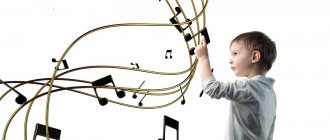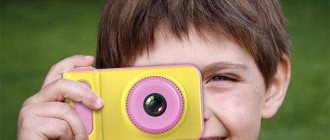The basis for successful schooling is good and timely preschool preparation. It is better to start this process at 3.5-4 years old, because today’s requirements for first-graders are quite high. And if the child is already 6 years old and no one has worked with him before, it will be more difficult to prepare him. There is a list of skills required for a future student, but they are not easy to master in a short period of time. And here the question becomes relevant: how to prepare a child for school at home at 6 or 7 years old?
What does a first grader need to know?
To answer this question, let’s first consider what specific requirements exist for today’s first-grader. A child entering first grade must:
- be able to introduce himself, tell something about himself, what he is interested in, name the names of his family members;
- be able to write block letters, distinguish vowels and consonants well, be able to read light text;
- learn the days of the week, names of months, seasons, say what time of year it is;
- distinguish between morning, lunch and evening;
- learn simple mathematical operations: addition and subtraction;
- understand simple geometric shapes, such as a square, circle, triangle, and be able to draw them;
- be able to retell short texts;
- be able to exclude unnecessary items from a number of items and explain your choice;
- be able to take care of oneself: dress, undress, tie shoelaces, maintain order in the workplace;
- be able to behave in society, respect elders:
- learn colors and preferably their shades;
- describe the picture;
- be able to count to twenty and from twenty to one;
- learn the parts of the human body and be able to draw it correctly;
- be able to answer questions, “When?”, “Why?”, “Where?”;
- distinguish between animate and inanimate objects;
- be able to defend your point of view without getting into a fight with those who disagree;
- be able to speak politely with peers and adults;
- be able to sit quietly in class, without whims and games with other students;
As you can see, the list is quite extensive and it is very difficult to acquire these skills in a short time. After all, when preparing for school you need to follow some rules:
- increase the load gradually, only when the baby has mastered the material covered;
- lessons
- should last 15 minutes with breaks of 15-20 minutes between them. During breaks, it is worth allowing the child to warm up and give him some physical activity;
- you need to alternate between a variety of activities to avoid unnecessary mental stress;
- Classes should be conducted in a playful way to interest the child. It is very important not to punish him for refusing to exercise, much less beat him. We need to name the reasons why a person should be educated.
- •for training, it is advisable to take manuals with large, bright illustrations. Also, the texts themselves should be interesting to the future student.
Forgot letters? Not scary
Yulia Borta, AiF: Elena Yuryevna, our country has the longest summer holidays. Is it good that children get so much rest?
Elena Chebotareva: I don’t think that’s a lot. On the contrary, during the holidays children are usually given a bunch of tasks. Parents and teachers believe that in the summer we also need to study and make up for everything that was not done during the school year. Children often cannot completely switch to rest. Meanwhile, they simply need to be distracted, relax and frolic for their own pleasure (at least part of the summer).
– Teachers often say that they even forget their letters over the summer.
– It is normal that for some time children forget what they have learned at school. There's nothing wrong with that. After all, adults, when they return from vacation, also need time to remember all the details of the work process and get into the usual routine. This is a property of the psyche: a person needs time to switch from one situation to another.
Therefore, you should not bully children for forgetting letters; on the contrary, rejoice: if a child forgot something, it means he had a rest. Just help him remember. This is not difficult, especially since the school curriculum at the beginning of the year provides for a repetition of what has been covered.
Question answer
How to properly organize a schoolchild's daily routine. Infographics
– Many people advise starting preparation for school with a routine.
– The most common mistake parents make is when they scare their children in advance: “You’re relaxed, I can’t even imagine how you’ll get up for school later.” It is necessary not to frighten, but gradually, without whipping up passions, to prepare the child for returning to the desk, to introduce him to the school regime. And start this at least a week before school. After all, it is not so easy for children to adjust quickly, and primary schoolchildren, with a sudden change in their daily routine, can become very capricious, and their performance sometimes decreases.
How to prepare a child for school at home at 5, 6, 7 years old
It is clear that in order to prepare for school it is not enough to simply learn numbers and letters. It is important to comprehensively develop a child so that he can communicate with peers at the right level, but how to properly prepare a child for school at home at 5, 6, 7 years old and not discourage him from learning?
Knowing something interesting will make it much easier to establish yourself well among your classmates. And vice versa: being poorly prepared in this regard, a child can become an outsider in the team. Of course, it is easier for children from preschool institutions to get used to school than for those who have this preparation at home. But if you still decide to prepare your child for school at home, we bring to your attention our recommendations for these classes.
What a first grader should know
Numbers and counting
- A child aged 6 years should be able to count from 1 to 100 ; knowledge of reverse counting is welcome; in some schools this is even one of the conditions.
- Within the range of 1 to 10, he should be able to count subsequent and previous digits. For example, if you give the number 6, then the child must name the number that comes before this number, i.e. 5, and the next one, i.e. 7.
- The future first-grader should also develop the concepts of “equal,” “more,” “less,” and the concepts of comparison in the range from 1 to 10.
- It is important that your baby does not just memorize the names of numbers, but understands the meaning. Therefore, in some schools, one of the requirements is that the child is familiar with the concepts of “plus”, “minus” and can even add and subtract numbers from 1 to 10.
- He should also know basic shapes, such as circle, oval, triangle, square, trapezoid, etc.
Today you can find a wide variety of methods that tell in detail how to prepare your child for school in mathematics at home.
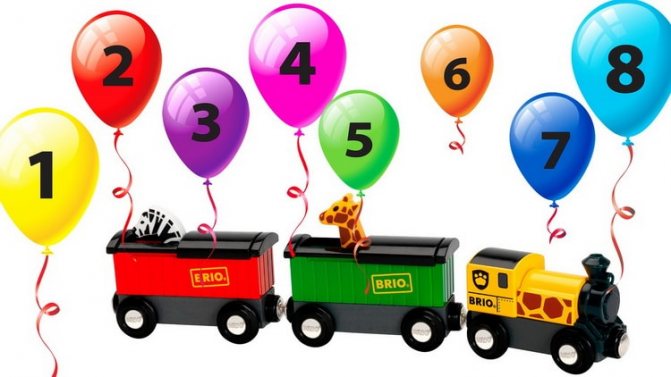
Reading Skills
- It is recommended that a first grader know all the letters of the alphabet and be able to read syllables. Reading is the basis on which a child can easily learn new subjects. Therefore, parents need to devote enough time so that your baby can master this skill.
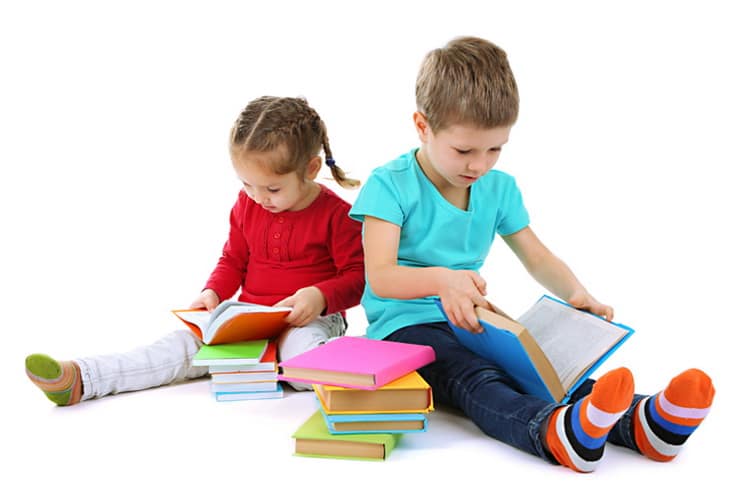
Writing skills
- In addition to the alphabet, the child must distinguish consonant and vowel sounds, be able to write simple words in block letters and divide them into syllables.
- He must also be able to hold a pen correctly and trace the contours of various shapes without lifting the pencil or pen.
- It is acceptable if a child writes some letters in mirror image and confuses “Z” and “E”.
- Creative skills.
- At such an interesting age, the future first grader knows quite well how to use pencils, felt-tip pens, paints, and can carefully color pictures without going beyond the contours of the figures.
- Knows how to sculpt various animals, vegetables, fruits and other familiar things or objects from plasticine or clay.
- He also has fairly well-developed abstract thinking, so the child can make various ikebana designs from dry leaves and crafts from scrap materials.
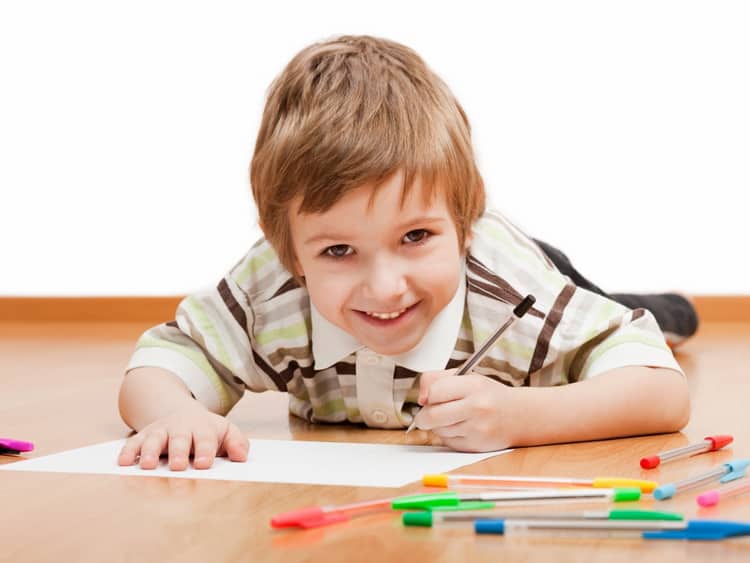
Understanding the world around us
- The child is already able to remember seasons, dates, countries and cities.
- He can easily tell what his name is, what city he lives in, what country he is in, what his parents’ names are, his home address and telephone number.
- May also know the types of animals, birds and fish and how they differ from each other.
- The child must learn to distinguish between vegetables, fruits and berries. Master natural phenomena such as snow, rain, lightning, hail, etc. And also distinguish between the times of day: morning, afternoon, evening, night.

Reading activities
- these activities are paramount relative to all others, because having mastered reading, it will be easier for the child to study other subjects (you can read more about how to easily and quickly teach a child to read in this article);
- letters should be taught in alphabetical order. For clarity, you can sculpt them from plasticine and guess what the letter looks like. For example, “w” - for a beetle, “o” - for glasses, and so on. You can also interest your child by showing letters with your hands or with your whole body. For ideas on how to easily and playfully learn all the letters with your child, see here
- read a simple text to the future student and ask him to find the letter he just learned in it;
- invite your child to answer questions about the text, tell what it says, and retell it;
How do you know if your child is ready for school?
First of all, you should make sure that your child has an idea of what school is and why children go there. Talk to him, ask him to draw his future class and his first teacher, find out why he wants to go to school. You can translate this into a game - place his favorite toys around the child and let each of them “tell” why school is interesting. Learn something new, communicate and play with other children, learn to read and write well - come up with your own story for each character, and then ask your child whose he liked best.
Before going to first grade, any child has a conversation with a school psychologist, who determines whether he is ready for school. The questions are standard, so you can prepare your child for the “interview” yourself so that he doesn’t get confused and can calmly and clearly answer all the questions. It will also help you figure out if there are gaps in your knowledge and what you should pay attention to. Below we provide a list of questions that are always asked at such meetings.
- The full name of the child and parents, home address and date of birth - the child should name this quickly and without hesitation;
- Names of the months, what seasons they belong to;
- Determining an extra item in a row (a fruit in a row of vegetables, a bird in a row of animals, etc.)
- Professions - the child must name at least a few professions that he knows, and also say what his parents do;
- Compiling a story based on the picture, a clear description of what he sees.
The child may also be asked to trace the outline of an image (attention is paid not only to how he copes with the task, but also to whether he is holding the pen correctly), to write letters and syllables, and to read a few words.
You can easily conduct such preschool testing at home to find out your child’s level of preparation and correct any shortcomings in time.

Math classes
- It’s good to start these activities by counting simple, familiar objects, such as toys, candy, fruit. Later, you can gradually switch to counting sticks or special cards. Learn to count with whole numbers;
- Learn numbers effectively in pairs. For example, 1 and 2, 5 and 6. This will make it easier for the child to understand that if you add one to five apples, you get six apples. In one lesson you need to study one number pair, and at the beginning of the next, repeat what you have learned and only then take on new numbers.
- •to interest your child in geometry, you can study geometric shapes using cookies as an example. Today in stores you will find square, round, and triangular cookies.
- when simple figures have been studied, you can start drawing them using a ruler;
- It is useful to alternate all of the listed activities.
Games to prepare children for school
Combining activities with educational games is the basis for proper and easy learning. All learned materials are easier to remember if the child repeats what he has learned while having fun. Here we present several games that preschool children love.
- Place 6-7 toys in front of your child, then ask him to turn away and swap two of them. Let him guess which ones are out of place. If the child copes with this task easily, complicate it by increasing the number of objects.
- After reading a fairy tale to your child, ask him to retell it for someone in your family. This way he will learn to remember information better and develop speech skills.
- While walking down the street, together name the numbers of houses and cars, count the dogs and cats you meet along the way, look for objects of the same color, etc. There can be a lot of options; you can even invite the child to choose what exactly he wants to count.
- It is very useful to assemble puzzles for fine motor skills and the development of logical thinking. Do not forget that the child must put together the picture himself; you can prompt him, but no more.
- After learning a new letter, invite your child to mold it from plasticine and come up with an interesting story. Such games develop not only motor skills, but also creative imagination.
Talk to your child more. Let him tell you how his day went, retell the content of his favorite cartoon, and describe the character of the main character. At school, the child will have to communicate a lot with teachers and peers; he should not be afraid to answer questions and be the first to start a conversation.
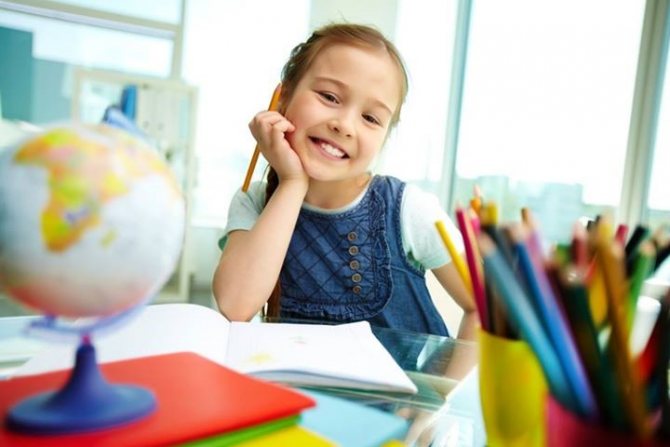
Writing classes
- the baby’s hand should be prepared for writing, because it is not yet ready for this type of activity;
- Classes for the development of fine motor skills have a very good effect in this regard. At two or three years old, you can use cereals, pasta, and beads for this; learn to tie your shoelaces;
- teach your child to use children's safety scissors with rounded ends - this also prepares the hand well for writing;
- first you need to learn how to write block letters, and only having received the first results in this direction, you should start writing capital letters;
- teach your child to write neatly without going beyond the lines;
- use a handle that is comfortable for your baby;
- Finger exercises provide great assistance in preparing for writing. It will be effective if you do it together with your child, saying “We wrote, we wrote, our fingers are tired. We’ll rest a little and start writing again.”
- The notebook in which you are going to write must meet modern school requirements. Stores offer a wide selection of all kinds of writing aids;
Methods of preparing children for school
The future performance of your child largely depends on the first days at school. If he sees that other children can and know much more than him, then the child can forever put himself among the losers, deciding that he is worse than the rest. What should you pay attention to? Remember that preparing for school is a long process that includes not only learning to write and read, but also psychological support. What should a child be able to do before first grade?
- Read syllables, be able to write;
- Count to 20, add and subtract;
- Know the seasons, days of the week, months;
- Be able to draw geometric shapes;
- Retell a short text, have intelligible speech;
- Be independent: be able to tie shoelaces, dress, maintain order;
- Distinguish between animate and inanimate objects;
- Communicate with peers, do not show aggression.
This is not the entire list of necessary skills that a child going to school should have. Naturally, pre-school preparation of children for school does not begin a month before the first of September.
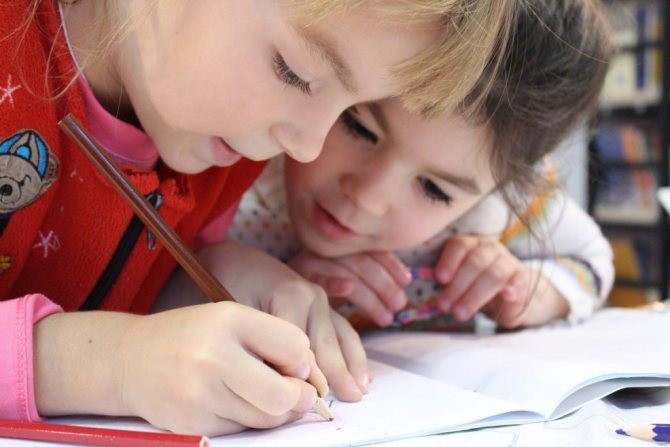
Creative activities
- teach your child to use a brush with paints, pencils, markers, etc.;
- It’s good if the baby learns to shade shapes without going beyond their boundaries. For this purpose, use coloring pages with large details in the drawings;
- effectively combine creative activities with the study of geometric shapes. For example, you made an applique of a watermelon and immediately noticed that it resembles a circle;
- and vice versa: you can draw, cut and sculpt letters and numbers. This way the child will better understand what is being studied;
What specialists should you contact to prepare your child for school?
To begin with, evaluate how developed the child’s speech apparatus is, whether he can pronounce all the letters, whether he can already read and write, and whether he knows numbers and numbers. Apart from this, how healthy is your child, is he ready to wake up early and spend half his day at school? These criteria are very important, since they are the ones you will have to work with first of all. If the baby has a weak immune system, then it is worth strengthening it. You may even need to see a doctor. So that he does an examination, orders tests and prescribes vitamins.
At preschool age, a child may not pronounce some letters, burr, or change syllables in words. To fix this, go to a speech therapist. Explain to your child that this is an important and necessary procedure, and the doctor will not offend him. If your child still resists, tell him how much you love him and turn it into a game.
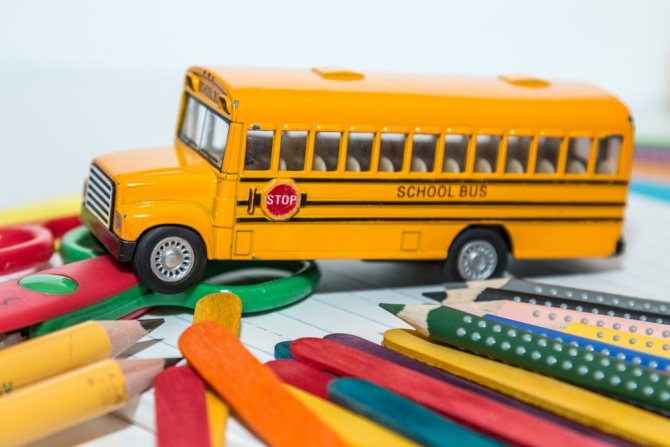
When preparing for 1st grade, a child should already learn to read, write and count. In modern schools, they do not devote much time to these things, so it is better if the child is already prepared. If you yourself cannot spend one or two hours every day, then hire a preschool teacher.
Another important point is physical training. If your child is weak or overweight, send him swimming or do exercises with the whole family every morning, walk a lot and be in the fresh air.
It is a huge challenge for parents to realize that all the above points are very important. They will help the child to relax, better navigate society and instill a thirst for knowledge.
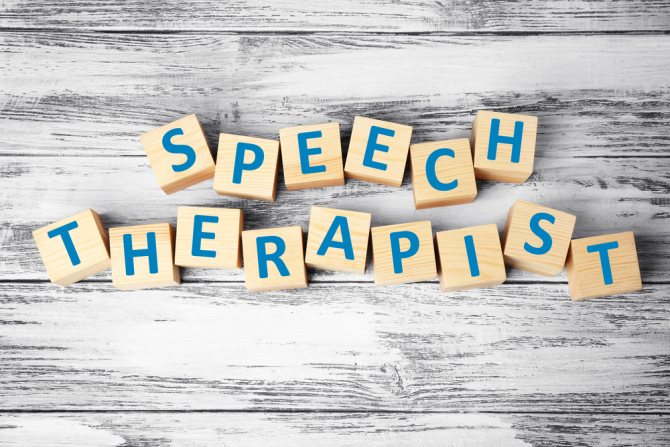
Psychological readiness for school
Psychologists say that a child’s adaptation to school will be smoother if the first-grader has developed certain skills. Here is their list:
- desire to study, interest in knowledge;
- the ability to analyze and draw conclusions, compare objects and concepts;
- understanding of the goals of learning at school, awareness of one’s self, communication skills;
- concentration on what is being studied at the moment;
- overcoming difficulties, the ability to finish what you start.
To prepare a child for school psychologically, parents should:
- communicate with the future student, read together and discuss what they read;
- when discussing a fairy tale or story read, encourage the child to think about what is described in the text, teach him to draw conclusions and express his own opinion about what he read;
- Show your child what school is like in a playful way, praise the child during the game, and give careful advice. It’s good if you change the roles of “student” and “teacher”;
- do not finish tasks instead of your child, teach him to do it independently or with a little help from you;
- Do not limit the independence of your child. Excessive care can only harm him. If you do not allow your child to learn in due time to independently perform such simple actions as tying shoelaces, fastening buttons, dressing and undressing, neatly putting his clothes in place, etc., he may become the subject of ridicule in the children's group. And vice versa: healthy independence will help the child to assert himself in a new society and gain the necessary authority.
- Teach your child to communicate with peers: arrange games with other children in the yard or at home, take part in these games yourself, and along the way, gently tell your child how best to communicate with peers and not quarrel.
- Try never to laugh at your baby alone, and especially in the presence of other children. This can give rise to low self-esteem in the child, which leads to self-doubt;
- Use positive motivation to encourage your child to learn. Tell him how many new, useful and interesting things he can learn in lessons at school;
- •teach your child to be disciplined, explain to him why silence is needed in the classroom during the lesson.
- Teach your child to ask questions to the teacher if something said is not clear. Let him be afraid of not knowing something rather than clarify it with the teacher. Explain to your child that he must take care of his knowledge himself.
- Help your child learn self-respect and understand that excessive aggression or, on the contrary, timidity can harm him. After all, you need to be able to defend your point of view calmly, without shouting or fighting. Try to play out typical situations that arise between children at school. During the game, you will be able to see how ready your child is for such situations, you will be able to give him advice, teach him how to behave correctly. You can also offer your child your own way out of the current situation, but only after you listen to the child’s opinion on this matter. Of course, you need to encourage the child to do well in any case.
Home preparation for school (assignments)
You can prepare your child for school yourself. Psychologists give the following advice to parents of future first-graders:
- find out what program is provided for the primary grades of the school;
- purchase the necessary benefits;
- draw up a detailed exercise plan using expert recommendations.
Homeschooling Methodology
The technique usually does not cause difficulties. It is easy to purchase workbooks designed for specific programs. The suggested exercises are sufficient. To prevent the completion of assigned tasks from becoming boring, it is better to supplement the blocks with game components.
It’s also easy to choose your own exercises. In any case, it is advisable to create your own study plan.
Recommended exercises include:
- Writing elements of letters and numbers. It is convenient to use teaching aids and ready-made copybooks. A good help would be to depict patterns and ornaments.
- Solving mathematical problems, examples. You don't have to use a textbook. Game techniques and images of objects are allowed.
- Performing graphic tasks. The use of school notebooks requires the ability to count cells, lines, and indent the required amount. When developing skills, it is useful to use graphic dictations. The adult dictates, indicating the direction with the number of cells, the child imitates.
- A good option would be to draw symmetrical pictures. The cells of the notebook sheet are used again. One half of the drawing is ready, you need to draw a mirror image next to it to get a whole picture.
- Another recommended task is to go through the depicted labyrinth.
- Solving logical problems. The complex includes the use of geometric shapes. It is proposed to classify objects by color, size, shape, number of sides, angles. It is also good to include various tasks that develop intelligence and ingenuity.
- Reading. Children should be offered short texts without unclear words. It is desirable that the content be interesting, unusual, and exciting. You are asked to retell what you have read. An important point is the expression of the main idea of the plot.
- Speech development. A great exercise is different variations of word games. It will be useful to memorize poetry. Repeated repetition of a rhymed text by an adult imperceptibly “triggers” the mechanisms of memorization. Another good task is to write a story using given words.
- Expanding your horizons. Primary school educational programs include the subject “The World around us”. It would be a good idea to explain to the preschooler in advance the basics of the structure of nature and society.
Important! The development of fine motor skills deservedly receives so much attention – it becomes easier for children to write and their hand moves more freely. Modeling, drawing, weaving, and sand compositions are usually recommended.
How to teach lessons at home
Lessons with children are close to school classes and can be complex, including tasks related to different disciplines and areas. It is allowed to study one subject each time, changing forms of study. The main indicator is the quality of information perception.
When studying at home, it is easy to use unusual formats. For example, a good option is to study while walking. It is more interesting to solve examples by writing numbers with chalk on the asphalt. Task conditions may include surrounding objects.
Can be used:
- puzzles:
- The tit birds sat in a row and said words (letters);
- Cunning little brothers live in a smart book. There are ten of them, but these brothers will count everything in the world (numbers);
- tongue twisters and rhymes:
- There is grass in the yard, there is firewood on the grass: one - firewood, two firewood, three firewood...
- The quail and quail have five quails;
- songs: (“Write different letters with a thin feather in a notebook. They teach at school, teach at school, teach at school. Subtract and multiply, don’t offend kids...”);
- fairy tales (you can come up with them yourself based on folk tales);
- puzzles (“Wolf, goat and cabbage”, “Name five days without saying numbers or names of days”).
Parents are often interested in the recommended duration of a lesson. Usually one hour two to three times a week is enough. Ideally, everything is planned individually, taking into account the capabilities of the teacher and student.
The frequency of lessons is a serious matter. You can achieve noticeable results with regular exercise.
It is necessary to teach a six-year-old to complete tasks on time. It is better to do lessons during the day. Evening is a bad time to solve examples. To a tired child, basic tasks seem incomprehensible. Of course, there is no interest in studying either.
It is also advisable to go to bed on time. Then waking up in the morning will not become painful and painful. When the baby has had enough sleep, he is full of energy, and it is easier to work on assignments.
Important! The time for completing tasks should be chosen based on other activities during the day. It’s bad if the home lesson starts immediately after visiting the music school or swimming pool. Fatigue slows down thought processes, so the result is unlikely to please you.
Any lesson taught must include independent work and exercises under the supervision of an adult. A new type of activity always requires additional support and explanations of the material.
Some tasks must be completed within a time frame. For example, ten minutes are given to solve a problem. This approach will teach you not to waste time, doing your work rationally. Just don’t create a tense atmosphere by constantly reminding yourself of the time. It is enough to evaluate the result by drawing the preschooler’s attention to compliance with the conditions.
Health issues and school
A special place in preparation for school is occupied by the health of the future student.
It is very important during this preparation and during the training itself to be able to teach the future student something and not harm his health.
At the age of 6-7 years, a child undergoes such important changes as the change of teeth and intensive growth of the whole organism. This is the age when the need for movement in children is very great. And if the opportunity arises to sit at a desk at the age of 7, then from a health point of view, this is much better for the child. If you have to send your child to school at the age of 6, then special attention should be paid to the quality of physical training that your future educational institution offers you. It is very good if the school has an equipped gym and swimming pool. After all, in addition to gaining new knowledge, the child needs frequent physical education lessons so that the blood vessels and heart work actively, so that there is an appropriate load on the joints, etc. Voluntary physical activity during breaks is also beneficial for the health of students, and it is very good if the classroom is ventilated during the absence of students.
On the part of parents, one of the components of healthy preparation for school is proper summer rest before studying. As you know, a child needs rest:
- from communicating with a large number of people and, accordingly, from contact with sources of various infections;
- from a huge amount of household chemicals and exhaust gases;
- from catering.
Dr. Komarovsky describes the ideal vacation for a child this way: “a dacha in a village where there are a minimum of people, where a mother or grandmother has prepared something from the garden and where there are certainly no household chemicals.” That is, an ideal vacation for a child from a doctor’s point of view is “an inflatable pool with well water, a dump truck dumped sand nearby, a dirty, hungry child climbs out of the water into the sand and shouts “Mom, let me eat!” If a child spends the summer like this, then his heart, blood vessels, and mucous membranes will work perfectly and he will be ready to meet new friends and, accordingly, new infections.
Developing your child’s natural curiosity, get to know the world around you, people and communication with them. Considering the advice of psychologists, teachers and doctors on how to prepare a child for school at home at age 6, do not forget to show personal interest in the process, which will further inspire the future student. If a first-grader is prepared for school, if he masters the basic skills for learning, his horizons are broadened, and he knows how to communicate with peers, then it will be much easier for him to study at school than otherwise, if he is not suitably prepared.
Enter training mode
It is important for schoolchildren of all ages to get in the mood for studying and get into a routine. Over the summer, many children get used to going to bed late, and after September 1 they have to get up early again. Teachers advise starting to change the daily routine about two weeks before returning to school - putting the child to bed and waking up earlier.
You can talk to older children as equals, explain why you need to integrate into the work regime: “This should be of a contractual nature, like everything in communicating with teenagers.”
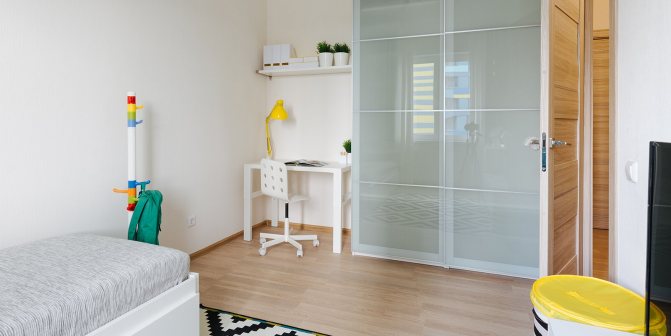
For the future, Nina Seredenko advises from the very beginning of the holidays to try not to disrupt the child’s daily routine too much. If during the school year he got up for school at seven in the morning, then during the holidays he should try to wake up at least around the same time.
The director of school No. 2200, Sergei Egorov, emphasizes that when integrating into the educational regime, one should not forget about rest:







